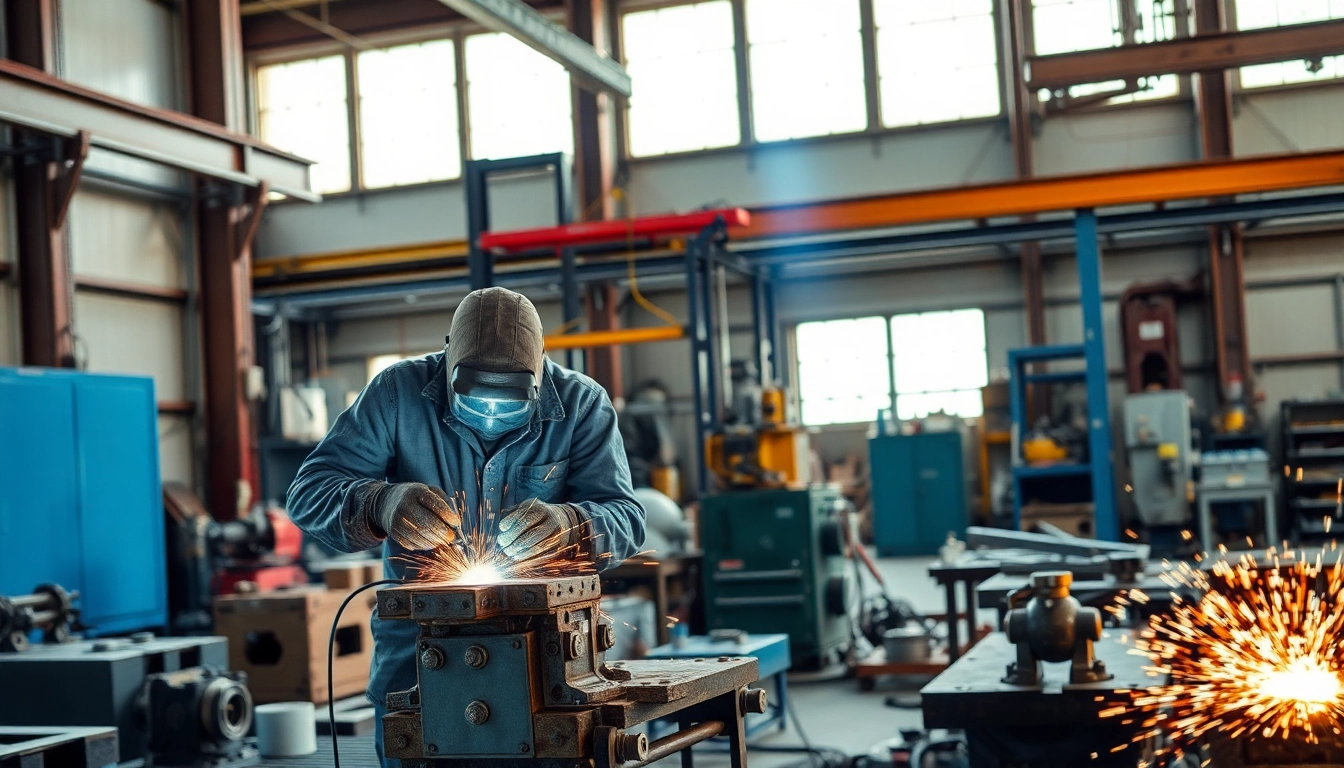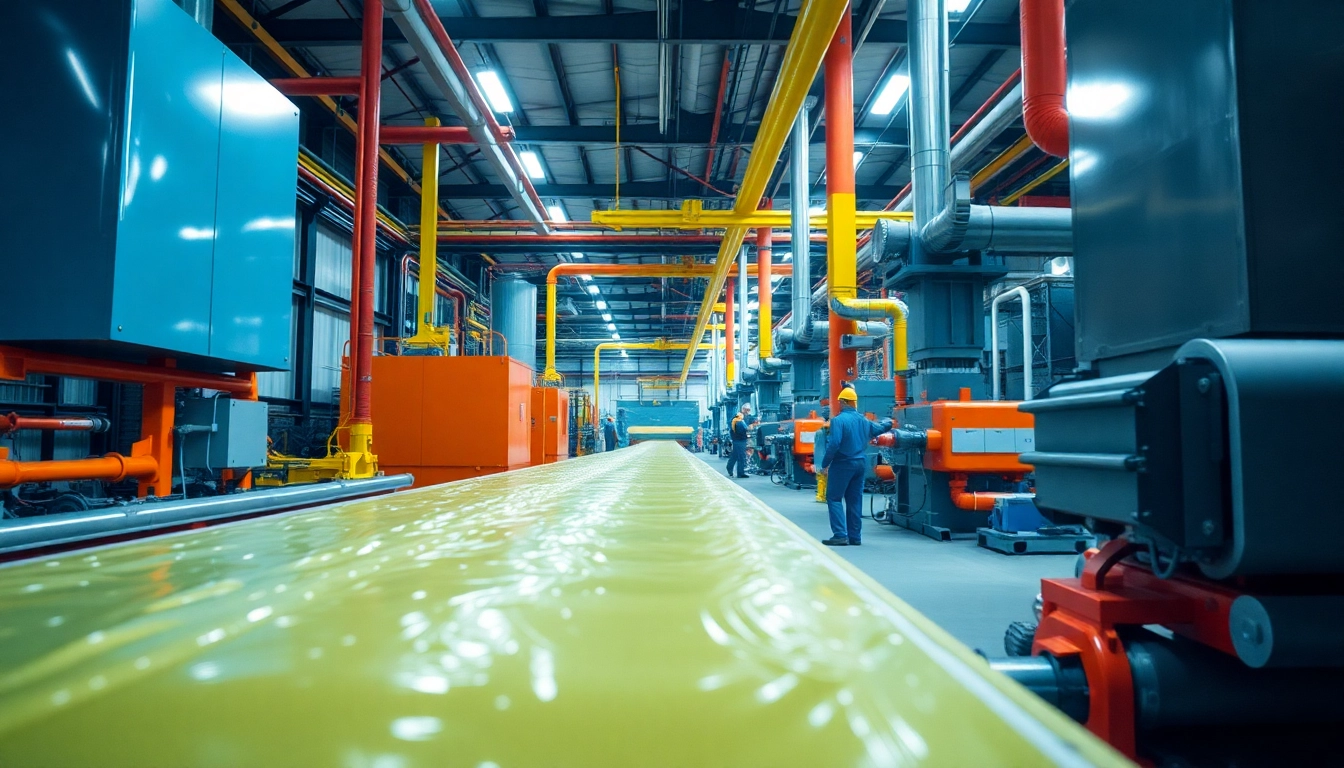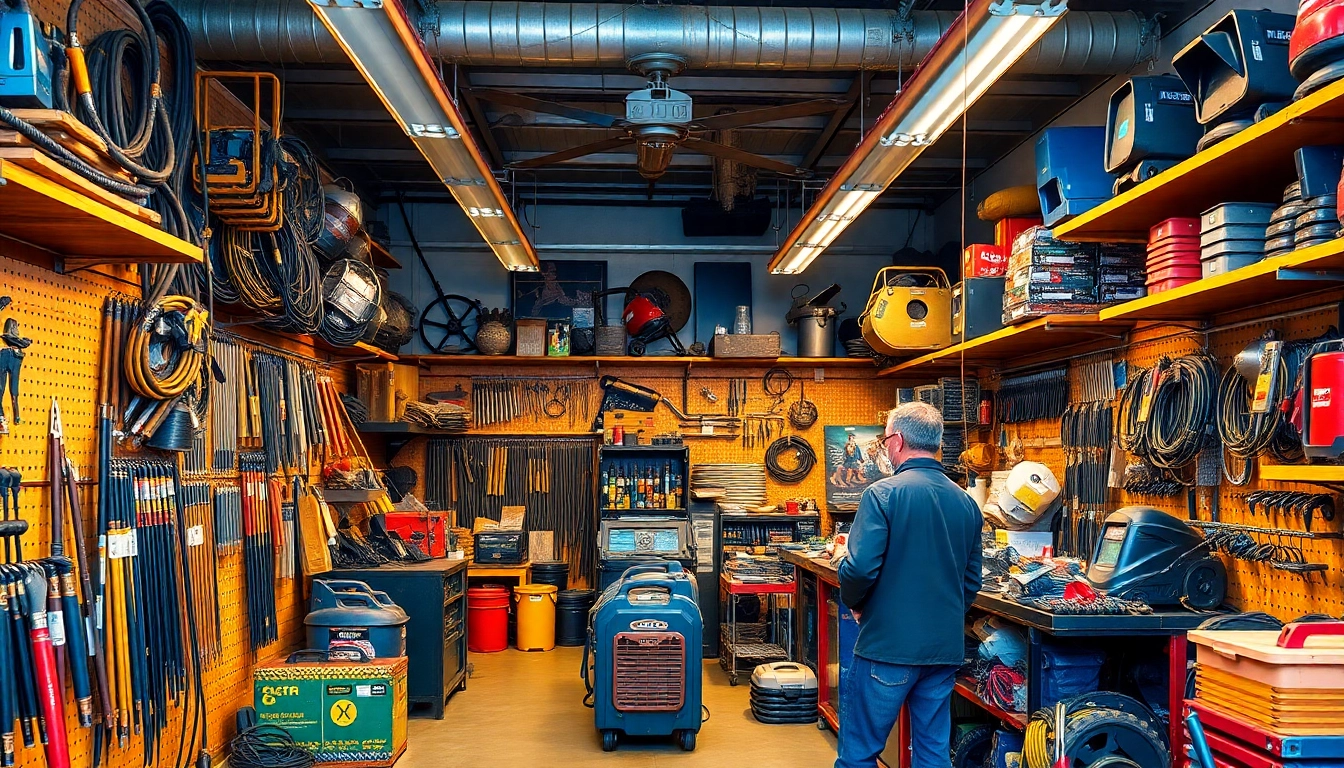Understanding Custom Steel Fabrication
Custom steel fabrication is a specialized service that involves the design, modification, and creation of metal structures from raw materials. This process caters to various industries, enhancing product functionality, aesthetics, and durability. In today’s competitive landscape, companies are increasingly turning to custom steel fabrication to meet their unique needs and specifications.
The Process and Techniques of Custom Steel Fabrication
The journey of custom steel fabrication begins with an idea, usually represented through technical drawings or 3D models. Skilled fabricators then leverage various processes to bring these designs to life. The main stages include:
- Design and Engineering: Initial designs are created using CAD (Computer-Aided Design) software, which allows for precise adjustments and collaboration.
- Material Selection: Different types of steel and alloys are chosen based on the project’s requirements, considering factors such as strength, corrosion resistance, and weight.
- Fabrication Techniques: Common techniques include cutting, bending, welding, and machining. Each technique is selected based on the specifications and intended use of the final product.
- Finishing: After fabrication, products often undergo a finishing process which may include painting, galvanizing, or powder coating to enhance appearance and durability.
Applications of Custom Steel Fabrication in Various Industries
Custom steel fabrication finds application across a multitude of sectors:
- Construction: Steel frames, beams, and columns are essential in building sturdy structures.
- Automotive: Customized components improve performance and safety in vehicles.
- Aerospace: Precision parts are fabricated to withstand extreme conditions.
- Marine: Specialized structures and fittings are created for ships and marine vessels.
Each application requires specific knowledge of materials and engineering principles, underscoring the importance of expertise in the fabrication process.
Common Materials Used in Custom Steel Fabrication
Various materials can be used in custom steel fabrication, including:
- Mild Steel: Known for its malleability and weldability, ideal for various applications.
- Stainless Steel: Offers excellent resistance to corrosion and is widely used in food processing and outdoor structures.
- Alloy Steel: Enhanced properties due to the addition of various elements, suitable for high-strength applications.
- Carbon Steel: Strong and affordable, commonly used in construction and manufacturing.
The choice of material affects the overall performance and longevity of the fabricated product, making it crucial to consider project requirements carefully.
Benefits of Choosing Custom Steel Fabrication
Opting for custom steel fabrication brings a plethora of advantages:
Tailored Solutions for Unique Project Requirements
Every project has unique requirements. Custom steel fabrication allows clients to define specifications that match their exact needs, resulting in uniquely crafted solutions. Whether it’s a specific size, weight capacity, or design aesthetic, custom fabrication ensures that every element is tailored to fit.
Cost-Effectiveness Compared to Traditional Fabrication
While traditional fabrication methods have their place, custom steel fabrication has proven to offer better value for specific projects. By eliminating unnecessary materials and focusing on precision, companies can reduce waste and save costs in the long run. Additionally, the durability of custom-fabricated steel often leads to lower maintenance and replacement costs over time.
Quality Assurance in Custom Steel Fabrication
Quality is paramount in fabrication. Established custom steel fabrication companies implement rigorous quality assurance measures, including inspections at various stages of production. This not only guarantees compliance with standards but also ensures that the finished product performs effectively in its intended application.
Finding the Right Partner for Custom Steel Fabrication
Partnering with the right fabricator is crucial. The following factors should be considered when evaluating potential partners:
Evaluating Experience and Expertise
Experience in the industry often correlates with the level of quality and craftsmanship. A fabricator with a proven track record is more likely to understand the nuances of metalwork and engineering, which contributes to superior results.
Understanding Capabilities and Equipment Used
The range of services offered can also be a deciding factor. Some fabricators may specialize in specific aspects of fabrication, while others might provide comprehensive services, from design to finishing. It’s essential to ensure that the facility is equipped with modern machinery and technology, as this directly impacts the quality and efficiency of the fabrication process.
Assessing Customer Service and Support
Responsive customer service is critical throughout the fabrication process. Establishing clear communication with your fabricator ensures any potential issues are addressed promptly, minimizing delays and misunderstandings.
Innovative Trends in Custom Steel Fabrication
The steel fabrication industry is continually evolving, and staying abreast of emerging trends can provide a competitive edge.
Adoption of New Technologies and Software
Cutting-edge technology such as CNC machining and 3D printing is transforming custom steel fabrication. These advancements allow for improved accuracy and efficiency, significantly reducing lead times and material waste. Furthermore, sophisticated software can simulate designs before fabrication, enhancing the preciseness of the outcomes.
Sustainability Practices in Custom Steel Fabrication
Environmental concerns are driving the industry towards sustainable practices. Many fabrication companies are now adopting strategies to reduce their carbon footprint by using recycled materials and implementing energy-efficient processes. Sustainable practices not only benefit the planet but can also appeal to eco-conscious customers.
Future Prospects and Industry Growth
As demand for customized solutions continues to rise, the custom steel fabrication market is expected to experience substantial growth. Innovations in materials and processes, coupled with an increasingly diverse range of applications, will likely drive this expansion. Staying informed about industry trends allows businesses to adapt and seize emerging opportunities.
Case Studies: Successful Custom Steel Fabrication Projects
Real-world examples can highlight the benefits and effectiveness of custom steel fabrication.
Commercial Projects Leveraging Custom Steel Fabrication
In commercial construction, custom steel fabrication has enabled developers to build complex structures that adhere to specific design parameters and safety standards. One notable example is a multi-story commercial complex where custom-fabricated steel girders allowed for expansive open spaces without compromising structural integrity.
Residential Applications of Custom Steel Fabrication
Custom steel fabrication is also finding its way into homes, with tailored products such as staircases, handrails, and decorative features. A unique residential project featured a custom-designed steel staircase that not only served as a functional element but also as a centerpiece of the interior design.
Challenges Overcome Through Custom Steel Fabrication Solutions
Challenges are inevitable in any project. Custom steel fabrication has proven essential in overcoming obstacles such as tight project timelines and unique design requirements. By utilizing advanced scheduling and agile manufacturing techniques, fabricators can adapt to unforeseen challenges and deliver successful outcomes.



